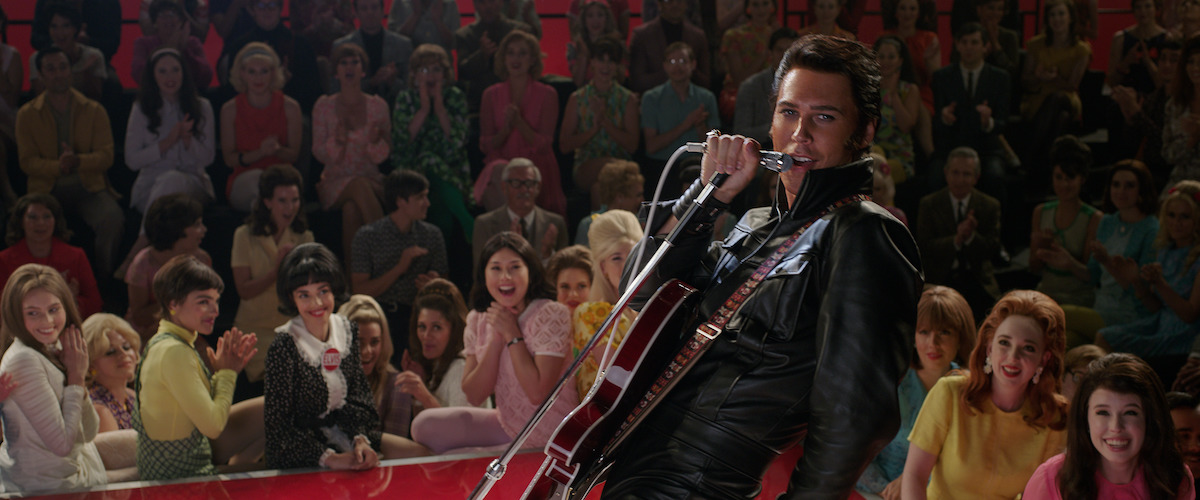
“Elvis” brings all of the glitz, rhinestones, and jumpsuits you’d expect in an Elvis film, but without the necessary complexity for a movie from 2022 about the “King.”
Maximalist filmmaker Baz Luhrmann , who abhors visual restraint and instead opts for grand theatricality, should be the perfect creator for a Presley biopic, but isn’t. Luhrmann tells us this icon’s story from the perspective of the singer’s longtime, crooked manager Colonel Tom Parker ( Tom Hanks ). After collapsing in his tacky, memorabilia-filled office, a near-death Parker awakens alone in a Las Vegas hospital room. The papers have labeled him a crook, a cheat who took advantage of Elvis ( Austin Butler ), so he must set the record straight.
From the jump, Luhrmann’s aesthetic language takes hold: An IV-drip turns into the Las Vegas skyline; in a hospital nightgown, Parker walks through a casino until he arrives at a roulette wheel. Carrying a heap of affectations, Hanks plays Parker like the Mouse King in “ The Nutcracker .” For precisely the film’s first half hour, “Elvis” moves like a Christmas fairytale turned nightmare; one fueled not by jealousy but the pernicious clutches of capitalism and racism, and the potent mixture they create.
It’s difficult to wholly explain why “Elvis” doesn’t work, especially because for long stretches it offers rushes of enthralling entertainment. In the early goings-on, Luhrmann and co-writers Sam Bromell , Craig Pearce , and Jeremy Doner meticulously build around Presley’s influences. They explain how Gospel and Blues equally enraptured him—a well-edited, both visually and sonically, sequence mixes the two genres through a sweaty performance of “That’s Alright Mama”—and they also show how much his time visiting on Beale Street informed his style and sound. A performance of “Hound Dog” by Big Mama Thornton ( Shonka Dukureh ), and the emergence of a flashy B.B. King ( Kelvin Harrison Jr.) furthers the point. Presley loves the superhero Shazam, and dreams about reaching the Rock of Eternity, a stand-in for stardom in this case. He’s also a momma’s boy (thankfully Luhrmann doesn’t belabor the death of Elvis’ brother, a biographical fact lampooned by “Walk Hard: The Dewey Cox Story”).
Though a biopic veteran, Hanks has rarely been a transformative actor. In this case, you can hear his accent slipping back toward Hanks. And the heavy prosthetics do him few favors, robbing him of his facial range—an underrated tool in his repertoire. And Hanks already struggles to play outright villains; shaping the story from his perspective takes the edge off of his potential menace. It’s a tough line for Hanks to walk, to be unsuspecting yet vicious. Hanks creates a friction that doesn’t altogether work, but feels at home in Luhrmann’s heavy reliance on artifice.
The most fascinating linkage in “Elvis” is the extrapolation of commerce and race. Parker is enamored by Presley because he plays Black music but is white. Elvis turns off the white Christian old, like the moribund country singer Hank Snow ( David Wenham ), and the homophobic men who consider him a “fairy.” Yet he excites the young, like Jimmie Rogers ( Kodi Smit-McPhee , both actors provide fantastic comic relief), and he has sex appeal. A wiggle, if you please. Luhrmann takes that wiggle seriously, showing sexually possessed, screaming women. Butler’s crotch, in precisely fitted pink pants and shot in close-up, vibrates. Harsh zooms, quick whip pans, and a taste for horniness (by both men and women) help make the early moments of this biopic so special. As does its anti-capitalist bent, which depicts how often labor, art, and ownership can be spit out and garbled in the destructive system.
Unfortunately, “Elvis” soon slips into staid biopic territory. We see the meteoric rise of Presley, the mistakes—whether by greed or naïveté—he makes along the way, and his ultimate descent toward self-parody. His mother ( Helen Thomson ) dies on the most hackneyed of beats. His father ( Richard Roxburgh ) quivers in the shallowest of ways. Priscilla ( Olivia DeJonge ) appears and is handed standard tragic wife material. The pacing slows, and the story just doesn’t offer enough playfulness or interiority to keep up.
But even so, the latter portions of Luhrmann’s film aren’t without its pleasures: The performance of “Trouble,” whereby Presley defies the Southern racists who fear his Black-infused music (and sensuality) will infiltrate white America, is arresting. Cinematographer Mandy Walker ’s freeze frames imitate black and white photography, like wrapping history in the morning dew. The performance of Elvis’ comeback special, specifically his rendition of “If I Can Dream” soars. During the Vegas sequences, the costumes become ever more elaborate, the make-up ever more garish, acutely demonstrating Presley’s physical decline. And Butler, an unlikely Elvis, tightly grips the reins by providing one show-stopping note after another. There isn’t a hint of fakery in anything Butler does. That sincerity uplifts “Elvis” even as it tumbles.
But all too often the film slips into a great white hope syndrome, whereby Presley is the sincere white hero unearthing the exotic and sensual Black artists of his era. B.B. King, Big Momma Thornton, and Little Richard (real-life supporters of Presley) exist solely as either bulletin board cheerleaders or alluring beings from a far-off land. While these Black artists are championed—an awareness by Luhrmann of their importance and the long and winding history of Black art moving through white spaces—they barely speak or retain any depth, even while a paternalistic Presley advances their cause.
The approach neither illuminates nor dignifies these figures. Instead, Luhrmann tries to smooth over the complicated feelings many Black folks of varied generations have toward the purported King. In that smoothing, Presley loses enough danger, enough fascinating complications to render the whole enterprise predictable. Because it’s not enough to merely have awareness, a filmmaker also has a responsibility to question whether they’re the right person to tell a story. Luhrmann isn’t. And that’s a failing that will be difficult for many viewers to ignore.
Luhrmann side-steps other parts of the Elvis mythology, including the age gap between Priscilla and Presley (the pair met in Germany when the former was 14 years old), and when Elvis became a stooge for Richard Nixon . Excluding the latter makes little sense in a movie concerning the commodification of Presley by capitalism and conservatism. Luhrmann wants to show the downfall of a doe-eyed icon by nefarious systems, but never pushes the envelope enough for him to become unlikable, or better yet, intricate and human.
That flattening easily arises from telling this story from Colonel Parker’s perspective. He doesn’t care about Black people, therefore, they exist as cardboard cutouts. He cares little for Priscilla, therefore, she has little personhood. And Parker certainly isn’t going to tarnish the image or brand of Elvis because it corrodes himself. These undesirable outcomes, facile and pointless, make logical sense considering the framing of the narrative. But what good is making a sanitized Elvis biopic in 2022? And truly, who really needs a further fortification of Presley’s cultural importance when it’s been the dominant strain for over 60 years? It’s another noxious draft in history clumsily written by white hands.
“Elvis” certainly works as a jukebox, and it does deliver exactly what you’d expect from a Luhrmann movie. But it never gets close to Presley; it never deals with the knotty man inside the jumpsuit; it never grapples with the complications in his legacy. It’s overstuffed, bloated, and succumbs to trite biopic decisions. Luhrmann always puts Butler in the best position to succeed until the credits, whereby he cuts to archival footage of Presley singing “Unchained Melody.” In that moment Luhrmann reminds you of the myth-making at play. Which is maybe a good thing, given Luhrmann’s misleading, plasticine approach.
Now playing in theaters.


Robert Daniels
Robert Daniels is an Associate Editor at RogerEbert.com. Based in Chicago, he is a member of the Chicago Film Critics Association (CFCA) and Critics Choice Association (CCA) and regularly contributes to the New York Times , IndieWire , and Screen Daily . He has covered film festivals ranging from Cannes to Sundance to Toronto. He has also written for the Criterion Collection, the Los Angeles Times , and Rolling Stone about Black American pop culture and issues of representation.

- Austin Butler as Elvis Presley
- Dacre Montgomery as Steve Binder
- Tom Hanks as Colonel Tom Parker
- Olivia DeJonge as Priscilla Presley
- Kelvin Harrison Jr. as B.B. King
- Richard Roxburgh as Vernon Presley
- Helen Thomson as Gladys Presley
- Yola as Sister Rosetta Tharpe
- David Wenham as Hank Snow
- Luke Bracey as Jerry Schilling
- Alex Radu as George Klein
- Alton Mason as Little Richard
- Xavier Samuel as Scotty Moore
- Kodi Smit-McPhee as Jimmie Rodgers Snow
- Natasha Bassett as Dixie Locke
- Leon Ford as Tom Diskin
- Baz Luhrmann
Writer (story by)
- Jeremy Doner
- Craig Pearce
- Sam Bromell
- Elliott Wheeler
- Jonathan Redmond
Cinematographer
- Mandy Walker
Leave a comment
Now playing.
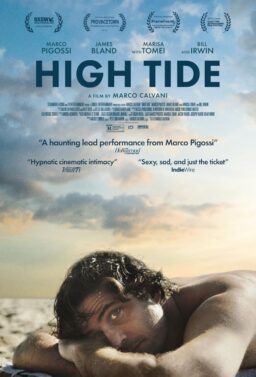
Woman of the Hour
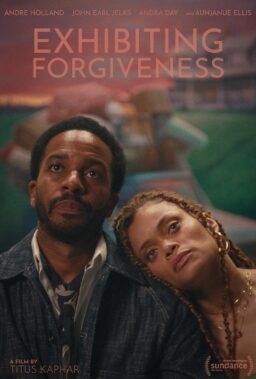
Exhibiting Forgiveness

The Shadow Strays
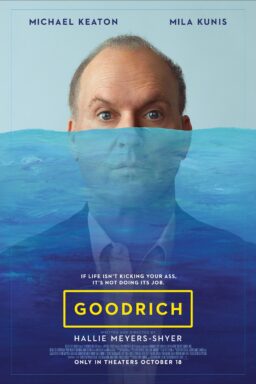
Fanatical: The Catfishing of Tegan and Sara

Gracie & Pedro: Pets to the Rescue

Green Night

Latest articles

10 Underrated Horror Movies That Roger Ebert Loved (and Where to Watch Them)

I Doubled in Size: Lee Pace on the Legacy of “The Fall”

NYFF 2024: Little, Big, and Far, Lázaro at Night, 7 Walks with Mark Brown
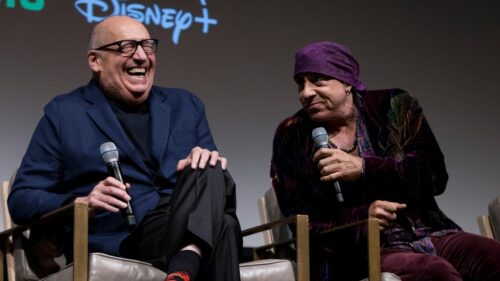
We Were Lucky: Jon Landau and Stevie Van Zandt on “Road Diary: Bruce Springsteen and the E Street Band”
The best movie reviews, in your inbox.
- Share full article
Advertisement
Supported by
‘Elvis’ Review: Shocking the King Back to Life
Austin Butler plays the singer, with Tom Hanks as his devilish manager, in Baz Luhrmann’s operatic, chaotic anti-biopic.

By A.O. Scott
My first and strongest memory of Elvis Presley is of his death. He was only 42 but he already seemed, in 1977, to belong to a much older world. In the 45 years since, his celebrity has become almost entirely necrological. Graceland is a pilgrimage spot and a mausoleum.
Baz Luhrmann’s “Elvis” — a biopic in the sense that “Heartbreak Hotel” is a Yelp review — works mightily to dispel this funerary gloom. Luhrmann, whose relationship to the past has always been irreverent and anti-nostalgic, wants to shock Elvis back to life, to imagine who he was in his own time and what he might mean in ours.
The soundtrack shakes up the expected playlist with jolts of hip-hop (extended into a suite over the final credits), slivers of techno and slatherings of synthetic film-score schmaltz. (The composer and executive music producer is Elliott Wheeler.) The sonic message — and the film’s strongest argument for its subject’s relevance — is that Presley’s blend of blues, gospel, pop and country continues to mutate and pollinate in the musical present. There’s still a whole lot of shaking going on.

As a movie, though, “Elvis” lurches and wobbles, caught in a trap only partly of its own devising. Its rendering of a quintessentially American tale of race, sex, religion and money teeters between glib revisionism and zombie mythology, unsure if it wants to be a lavish pop fable or a tragic melodrama.
The ghoulish, garish production design, by Catherine Martin (Luhrmann’s wife and longtime creative partner) and Karen Murphy, is full of carnival sleaze and Vegas vulgarity. All that satin and rhinestone, filtered through Mandy Walker’s pulpy, red-dominated cinematography, conjures an atmosphere of lurid, frenzied eroticism. You might mistake this for a vampire movie.
It wouldn’t entirely be a mistake. The central plot casts Elvis (Austin Butler) as the victim of a powerful and devious bloodsucking fiend. That would be Col. Tom Parker, who supplies voice-over narration and is played by Tom Hanks with a mountain of prosthetic goo, a bizarre accent and a yes-it’s-really-me twinkle in his eyes. Parker was Presley’s manager for most of his career, and Hanks portrays him as part small-time grifter, part full-blown Mephistopheles.
“I didn’t kill Elvis,” Parker says, though the movie implies otherwise. “I made Elvis.” In the Colonel’s mind, they were “the showman and the snowman,” equal partners in a supremely lucrative long con.
Luhrmann’s last feature was an exuberant, candy-colored — and, I thought, generally underrated — adaptation of “The Great Gatsby,” and the Colonel is in some ways a Gatsbyesque character. He’s a self-invented man, an arriviste on the American scene, a “mister nobody from nowhere” trading in the unstable currencies of wishing and seeming. He isn’t a colonel (Elvis likes to call him “admiral”) and his real name isn’t Tom Parker. The mystery of his origins is invoked to sinister effect but not fully resolved. If we paid too much attention to him, he might take over the movie, something that almost happens anyway.
Luhrmann seems more interested in the huckster than in the artist. But he himself is the kind of huckster who understands the power of art, and is enough of an artist to make use of that power.
As a Presley biography, “Elvis” is not especially illuminating. The basic stuff is all there, as it would be on Wikipedia. Elvis is haunted by the death of his twin brother, Jesse, and devoted to his mother, Gladys (Helen Thomson). Relations with his father, Vernon (Richard Roxburgh), are more complicated. The boy grows up poor in Tupelo, Miss., and Memphis, finds his way into the Sun Records recording studio at the age of 19, and proceeds to set the world on fire. Then there’s the Army, marriage to Priscilla (Olivia DeJonge), Hollywood, a comeback broadcast in 1968, a long residency in Las Vegas, divorce from Priscilla and the sad, bloated spectacle of his last years.
Butler is fine in the few moments of offstage drama that the script allows, but most of the emotional action is telegraphed in Luhrmann’s usual emphatic, breathless style. The actor seems most fully Elvis — as Elvis, the film suggests, was most truly himself — in front of an audience. Those hips don’t lie, and Butler captures the smoldering physicality of Elvis the performer, as well as the playfulness and vulnerability that drove the crowds wild. The voice can’t be imitated, and the movie wisely doesn’t try, remixing actual Elvis recordings rather than trying to replicate them.
At his first big performance, in a dance hall in Texarkana, Ark., where he shares a bill with Hank Snow (David Wenham), Snow’s son, Jimmie (Kodi Smit-McPhee), and other country acts, Elvis steps out in a bright pink suit, heavy eye makeup and glistening pompadour. A guy in the audience shouts a homophobic slur, but after a few bars that guy’s date and every other woman in the room is screaming her lungs out, “having feelings she’s not sure she should enjoy,” as the Colonel puts it. Gladys is terrified, and the scene carries a heavy charge of sexualized danger. Elvis is a modern Orpheus, and these maenads are about to tear him to pieces. In another scene, back in Memphis, Elvis watches Little Richard (Alton Mason) tearing up “Tutti Frutti” (a song he would later cover) and sees a kindred spirit.
The sexual anarchy and gender nonconformity of early rock ’n’ roll is very much in Luhrmann’s aesthetic wheelhouse. Its racial complications less so. “Elvis” puts its hero in the presence of Black musicians including Sister Rosetta Tharpe (Yola), Big Mama Thornton (Shonka Dukureh) and B.B. King (Kelvin Harrison Jr.), who offers career advice. An early montage — repeated so often that it becomes a motif — finds the boy Elvis (Chaydon Jay) simultaneously peeking into a juke joint where Arthur Crudup (Gary Clark Jr.) plays “That’s All Right Mama” and catching the spirit at a tent revival.
There’s no doubt that Elvis, like many white Southerners of his class and generation, loved blues and gospel. (He loved country and western, too, a genre the film mostly dismisses.) He also profited from the work of Black musicians and from industry apartheid, and a movie that won’t grapple with the dialectic of love and theft that lies at the heart of American popular music can’t hope to tell the whole story.
In the early days, Elvis’s nemesis is the segregationist Mississippi senator James Eastland (Nicholas Bell), whose fulminations against sex, race-mixing and rock ’n’ roll are intercut with a galvanic performance of “Trouble.” Later, Elvis is devastated by the assassinations of the Rev. Dr. Martin Luther King Jr. (who was killed “just three miles from Graceland”) and Robert F. Kennedy. These moments, which try to connect Elvis with the politics of his era, are really episodes in his relationship with Colonel Parker, who wants to keep his cash cow away from controversy.
When Elvis defies the Colonel — breaking out in full hip-shaking gyrations when he’s been told “not to wiggle so much as a finger”; turning a network Christmas special into a sweaty, intimate, raucous return to form — the movie wants us to see his conscience at work, as well as his desire for creative independence. But Luhrmann’s sense of history is too muddled and sentimental to give the gestures that kind of weight.
And Elvis himself remains a cipher, a symbol, more myth than flesh and blood. His relationships with Vernon, Priscilla and the entourage known as “the Memphis mafia” receive cursory treatment. His appetites for food, sex and drugs barely get that much.
Who was he? The movie doesn’t provide much of an answer. But younger viewers, whose firsthand experience of the King is even thinner than mine, might come away from “Elvis” with at least an inkling of why they should care. In the end, this isn’t a biopic or a horror movie or a cautionary parable: It’s a musical, and the music is great. Remixed, yes, and full of sounds that purists might find anachronistic. But there was never anything pure about Elvis Presley, except maybe his voice, and hearing it in all its aching, swaggering glory, you understand how it set off an earthquake.
Like a lot of people who write about American popular culture — or who just grew up in the second half of the 20th century — I’ve spent a lot of time thinking about Elvis. “Elvis,” for all its flaws and compromises, made me want to listen to him, as if for the first time.
Elvis Rated PG-13. Rock ’n’ roll, sex, drugs. Running time: 2 hours 39 minutes. In theaters.
A.O. Scott is a co-chief film critic. He joined The Times in 2000 and has written for the Book Review and The New York Times Magazine. He is also the author of “Better Living Through Criticism.” More about A.O. Scott
Find the Right Soundtrack for You
Trying to expand your musical horizons take a listen to something new..
Daniel Nigro fronted an emo band. Now he makes pop smashes.
Cher, A Tribe Called Quest and Dave Matthews Band join the Rock Hall .
Sean Combs’s legal woes are growing. So are his streaming numbers .
Randy Newman is at his best when America is at its worst.
Hear 9 new songs worth your time on the Playlist .
- Cast & crew
- User reviews

The life of American music icon Elvis Presley, from his childhood to becoming a rock and movie star in the 1950s while maintaining a complex relationship with his manager, Colonel Tom Parker... Read all The life of American music icon Elvis Presley, from his childhood to becoming a rock and movie star in the 1950s while maintaining a complex relationship with his manager, Colonel Tom Parker. The life of American music icon Elvis Presley, from his childhood to becoming a rock and movie star in the 1950s while maintaining a complex relationship with his manager, Colonel Tom Parker.
- Baz Luhrmann
- Sam Bromell
- Craig Pearce
- Austin Butler
- Olivia DeJonge
- 2K User reviews
- 343 Critic reviews
- 64 Metascore
- 93 wins & 233 nominations total

Top cast 99+

- Colonel Tom Parker

- Jimmie Rodgers Snow

- Jerry Schilling

- Steve Binder

- Arthur 'Big Boy' Crudup

- Sister Rosetta Tharpe

- Dixie Locke

- Scotty Moore

- Little Richard
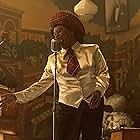
- Big Mama Thornton …
- All cast & crew
- Production, box office & more at IMDbPro
More like this

Did you know
- Trivia For his audition tape, Austin Butler originally recorded himself singing "Love Me Tender." When he watched it, he felt like it was an Elvis impersonation, and refused to submit it. A few days later, he had a nightmare that his deceased mother was dying again. Overwhelmed with grief and with the Elvis audition still on his mind, he decided to pour his emotion into music. Thinking of the lyrics to "Unchained Melody," he remembered, "I always take it for granted that that's to a romantic partner, [but] what if I sing that to my mom?" He sat down at the piano in his bathrobe and filmed it. "And that way of channeling those emotions just felt true," the actor said. The video immediately caught director Baz Luhrmann 's attention, as he was both confused and intrigued. Luhrmann stated, "Was it an audition? Or was he having a breakdown?" The director expressed that the audition felt like a spycam. Luhrmann asked to meet with Butler and eventually gave him the part.
- Goofs Elvis sings Trouble in 1956. Leiber and Stoller wrote the song in 1958.
Gladys Presley : The way you sing is God-given, so there can't be nothin' wrong with it.
- Crazy credits At the very end of the movie, the voice of Elvis Presley can be heard greeting the audience.
- Connections Edited from Frank Sinatra's Welcome Home Party for Elvis Presley (1960)
- Soundtracks Suspicious Minds Written by Francis Zambon (as Mark James) Performed by Elvis Presley Courtesy of RCA Records By arrangement with Sony Music Entertainment
User reviews 2K
- bbuick-38197
- Jun 29, 2022
Everything New on Prime Video in October

- How long is Elvis? Powered by Alexa
- Is Elvis Presley's music used in the movie?
- Did they film any scenes in Memphis?
- Who actually performs the vocals of the songs in this film?
- June 24, 2022 (United States)
- United States
- Official Warner Bros.
- Stage 5, Village Roadshow Studios, Oxenford, Queensland, Australia
- Warner Bros.
- Bazmark Films
- Roadshow Entertainment
- See more company credits at IMDbPro
- $85,000,000 (estimated)
- $151,040,048
- $31,211,579
- Jun 26, 2022
- $288,670,284
Technical specs
- Runtime 2 hours 39 minutes
- Dolby Digital
- IMAX 6-Track
- Dolby Surround 7.1
- Dolby Atmos
Related news
Contribute to this page.
- IMDb Answers: Help fill gaps in our data
- Learn more about contributing
More to explore
Recently viewed.
‘Elvis’ Review: Baz Luhrmann’s Biopic, Starring Austin Butler and Tom Hanks, Is a Stylishly On-the-Surface Life-of-Elvis Impersonation Until It Takes Off in Vegas
It's a spectacle that keeps us watching but doesn't nail Elvis's inner life until he's caught in a trap.
By Owen Gleiberman
Owen Gleiberman
Chief Film Critic
- ‘Woman of the Hour’ Review: Anna Kendrick Directs a Thriller About the ’70s Serial Killer Who Was a Contestant on ‘The Dating Game’ 4 days ago
- ‘Smile 2’ Review: A Skillfully Disquieting Sequel Turns the Life of a Pop Star Into a Horror Ride of Mental Breakdown 1 week ago
- ‘Suburban Fury’ Review: Sara Jane Moore, Who Tried to Assassinate President Ford, Gets Her Own Self-Centered, Radical-Chic Documentary 1 week ago

Elvis Presley , with the exception of the Beatles, is the most mythological figure in the history of popular music. That makes him a singularly tempting figure to build a biopic around. But it also makes telling his story a unique challenge. Everything about Elvis (the rise, the fall, all that came in between) is so deeply etched in our imaginations that when you make a dramatic feature film out of Elvis Presley’s life, you’re not just channeling the mythology — you’re competing with it. The challenge is: What can you bring to the table that’s headier and more awesome than the real thing?
Baz Luhrmann ’s “Elvis” is a fizzy, delirious, impishly energized, compulsively watchable 2-hour-and-39-minute fever dream — a spangly pinwheel of a movie that converts the Elvis saga we all carry around in our heads into a lavishly staged biopic-as-pop-opera. Luhrmann, who made that masterpiece of romantically downbeat razzle-dazzle “Moulin Rouge!” (and in 20 years has never come close to matching it), isn’t interested in directing a conventional biography of Elvis. And who would want him to? Luhrmann shoots the works, leaping from high point to high point, trimming away anything too prosaic (Elvis’s entire decade of churning out bland Hollywood musicals flashes by in an eye-blink). He taps into the Elvis of our reveries, searing us with the king’s showbiz heat and spinning his music — and how it was rooted in the genius of Black musical forms — like a mix-master across time.
Related Stories

Latest Music Licensing Deals Underscore Social Media Giants’ Frenemy Status

New 'Stranger Things' Squishmallows to Be Released as Netflix Sets Halloween Screenings, Themed Hub and More
Yet “Elvis,” for all its Luhrmannian fireworks, is a strange movie — compelling but not always convincing, at once sweeping and scattershot, with a central figure whose life, for a long stretch, feels like it’s being not so much dramatized as illustrated.
Popular on Variety
Austin Butler , the 30-year-old actor who plays Elvis, has bedroom eyes and cherubic lips and nails the king’s electrostatic moves. He also does a reasonably good impersonation of Elvis’s sultry velvet drawl. Yet his resemblance to Elvis never quite hits you in the solar plexus. Butler looks more like the young John Travolta crossed with Jason Priestly, and I think the reason this nags at one isn’t just because Elvis was (arguably) the most beautiful man of the 20th century. It’s also that Butler, though he knows how to bring the good-ol’-boy sexiness, lacks Elvis’s danger . Elvis had a come-hither demon glare nestled within that twinkle of a smile. We’ve lived for half a century in a world of Elvis impersonators, and Butler, like most of them, has a close-but-not-the-real-thing quality. He doesn’t quite summon Elvis’s inner aura of hound-dog majesty.
Luhrmann has always had the fearlessness of his own flamboyance, and from the first moments of “Elvis,” which take off from an outrageous bejeweled version of the Warner Bros. logo, the film lets us know that it’s going to risk vulgarity to touch the essence of the Elvis saga. There’s a luscious opening fanfare of split-screen imagery, showing us how Elvis loomed at every stage, but mostly as the decadent Vegas showman who flogged his own legend until it was (no pun intended) larger-than-life.
But the way that Butler comes off as more harmless than the real Elvis ties into the key problem with the film’s first half. Luhrmann is out to capture how Elvis, the smoldering kid whose hip-swiveling, leg-jittering gyrations knocked the stuffing out of our sexual propriety, with his thrusts and his eyeliner and his inky black hair falling over his face, was a one-man erotic earthquake who remade the world. Yet Elvis’s transformation of the world was, in fact, so total and triumphant that it may now be close to impossible for a movie to capture how radical it was. With its over-the-top shots of women at Elvis’s early shows erupting into spontaneous screams, or throwing underwear onstage, plus scandalous headlines and finger-wagging moral gatekeepers growing hysterical over how Elvis was busting down racial barriers or promoting “indecency,” “Elvis” keeps telling us that it’s about an insurrectionary figure. The irony is that Luhrmann’s style is too ripely sensual, too post-Elvis, to evoke what the world was like before Elvis.
We see Elvis as a boy sneaking into a Black tent-show revival, fusing with the writhing gospel he encounters there, or hearing Arthur “Big Boy” Crudup (Gary Clark Jr.) sing “That’s All Right Mama” in a slow high blues wail. Then we hear what Elvis did with that music, syncing it to his own speedy spirit. Elvis stole the blues, all right, or at least borrowed them, but the movie shows us how he frosted them with a bouncy layer of country optimism and his own white-boy exhibitionism. The film dunks us in Elvis’s blue-suede bliss and then checks us, after a while, into his heartbreak hotel. In a way, though, I wish that Luhrmann had told Elvis’s story in the insanely baroque, almost hallucinogenic fashion of “Moulin Rouge!” For all the Elvis tunes on the soundtrack, the film doesn’t have enough musical epiphanies — scenes that blow your mind and heart with their rock ‘n’ roll magic.
And what “Elvis” never quite shows us, at least not until its superior second half, is what was going on inside Elvis Presley. For a while, the film plays like a graphic novel on amphetamines, skittering over the Elvis iconography but remaining playfully detached from his soul. Instead, it filters his story through the point-of-view of his Mephistophelean manager Svengali, Col. Tom Parker, who is played by Tom Hanks , under pounds of padding and a hideous comb-over, as a carny-barker showman with a hooked nose and a gleam of evil in his eye.
By framing “Elvis” as if it were Parker’s self-justifying story, the movie structures itself as a tease: Will it really show us that Parker, as he claims in his voice-over narration, has been given a bum rap by history? That he not only made Presley’s career but had his best interests at heart? No, it will not. Yet Luhrmann, in presenting the Dutch-born, never legally emigrated Parker (née Andreas Cornelis van Kuijk) as a master flimflam artist who saw himself as the P.T Barnum of rock ‘n’ roll, revels in a certain fascinating ambivalence. Hanks, with his mustache-twirling accent and avaricious gleam, makes Parker a cousin to Jim Broadbent’s nightclub impresario in “Moulin Rouge!” — a corrupt showman who will do and say anything to keep the show going. Parker latches onto Elvis in 1955, then stage manages his career to within an inch of its life. Elvis, turned into the Colonel’s hard-working show horse, becomes a victim of Stockholm syndrome; no matter how much he sees through the Colonel’s schemes, he can’t bring himself to quit him. Yet he spends the rest of his life rebelling against him.
The movie shows us how Elvis’s career, after its volcano eruption in the mid-’50s, became a series of defeats and escapes. To calm the controversies that Elvis first inspired, the Colonel repackages him as “the new Elvis” (read: a singer of family-friendly ballads), which only makes Elvis miserable. To further defuse the attacks upon him, Parker, in 1958, encourages Elvis to go into the Army as a way to clean up his image. Stationed in Germany, Elvis meets the teenage Priscilla — but it’s one of the film’s telling flaws that the actress who plays her, Olivia DeJonge, registers strongly in an early scene but scarcely has the chance to color in her performance. Given the film’s epic ambition, the script of “Elvis” (by Luhrmann, Sam Bromell, Craig Pearce, and Jeremy Doner) is a weirdly bare-bones affair. Hanks delivers a performance that’s a luscious piece of hambone duplicity, but why aren’t there more piercingly written scenes between Elvis and the Colonel? Or Elvis and Priscilla? The Colonel should have been a great character, not a succulent trickster cartoon. If these relationships had been enriched, the story might have taken off more.
That Luhrmann compresses most of the 1960s into a two-minute campy montage, which parodies Elvis’s life as if it were one of his movies, is the clearest sign that “Elvis” is no orthodox biopic. The film’s second act leaps ahead to Elvis’s 1968 comeback special — the filming of it, and the backstage politics, which involve Parker promising NBC that they’re going to be getting a Christmas special, a plan we see undermined at every turn by Elvis and the show’s director, Steve Binder (Dacre Montgomery). The comeback special was, of course, a triumph, but the way Luhrmann tries to package it as a drama of sneaky rebellion doesn’t quite come off.
What comes off with startling power is the final third of the movie, which is set in Las Vegas during Elvis’s five-year residence at the International Hotel. For years, it became a cliché to mock Elvis for having embraced the shameless Middle American vulgarity of Vegas: the shows that opened with the “Also Sprach Zarathustra” fanfare from “2001,” the karate moves, the brassy orchestral sound of songs like his reconfigured “Battle Hymn of the Republic.” And, of course, he was on drugs the whole time. What Luhrmann grasps is that the Vegas years, in their white-suited glitz way, were trailblazing and stupendous — and that Col. Parker, in his greedy way, was a showbiz visionary for booking Elvis into that setting. The film captures how Elvis did some of his greatest work as a singer there, apotheosized by the avid ecstasy of “Burning Love.”
Yet as “Elvis” dramatizes, Vegas also became Presley’s prison, because Parker nailed him to a merciless contract, and for the most scurrilous of motivations: The Colonel needed Elvis at the International to pay off his own mountainous gambling debts, even if that meant that the singer, offstage (and, ultimately, onstage), became a slurry, pill-popping ghost of himself. Our identification with Elvis only deepens as we realize that he’s “caught in a trap.” The film’s richest irony is that Butler’s performance as the young Elvis (the one who’s far closer to his own age) is an efficient shadow of the real thing, but his performance as the aging, saddened Elvis, who rediscovered success but lost everything, is splendid. He’s alive onstage more than he was doing “Hound Dog,” and offstage, for the first time in the movie, Elvis becomes a wrenching human being. Luhrmann has made a woefully imperfect but at times arresting drama that builds to something moving and true. By the end, the film’s melody has been unchained.
Reviewed at Warner Bros. Screening Room (Cannes Film Festival, Out of Competition), May 13, 2022. MPAA Rating: PG-13. Running time: 159 MIN.
- Production: A Warner Bros. Pictures release of a Bazmark Production, Jack Group Production production. Producers: Baz Luhrmann, Catherine Martin, Gail Berman, Patrick McCormick, Schuyler Weiss. Executive producers: Toby Emmerich, Courtenay Valenti, Kevin McCormick.
- Crew: Director: Baz Luhrmann. Screenplay: Baz Luhrmann, Sam Bromell, Craig Pearce, Jeremy Doner. Camera: Mandy Walker. Editors: Matt Villa, Jonathan Redmond. Music: Elliott Wheeler, Elvis Presley.
- With: Austin Butler, Tom Hanks, Olivia DeJonge, Helen Thomson, Richard Roxburgh, Dacre Montgomery, Luke Bracey, Natasha Bassett, David Wenham, Kelvin Harrison Jr., Xavier Samuel, Kodi Smit-McPhee, Gary Clark Jr.
More from Variety

Harrison Ford Says Avoiding Marvel Roles Is ‘Silly’ When MCU Films Provide ‘Good Experiences for an Audience,’ Calls the Death of Movie Stars ‘Rubbish’

What Film Fund From AI Startup Runway Means for Content’s Future


Tom Holland Says Robert Downey. Jr Playing Doctor Doom Was a ‘Tough Secret to Sit on’ Because ‘I Have a Reputation for Ruining Things’: ‘I’ve Done No Press’

Samuel L. Jackson Signed His First Marvel Offer for Nine Movies and Wondered: ‘How Long Do You Have to Stay Alive to Make Nine Movies?’

Apple Vision Pro Foray Into Film Won’t Define the Device

‘Agatha All Along’ Finally Revealed Teen’s Identity — and Made Marvel History
More from our brands, kelsea ballerini plots 2025 ‘patterns’ tour.

This Georgian-Style Estate in Texas Just Hit the Market for $5.5 Million

Sports Grow From Private Equity Afterthought to Booming Market

The Best Loofahs and Body Scrubbers, According to Dermatologists

Laid: Stephanie Hsu’s Lovers Keep Dying in Peacock’s Dark Rom-Com — Watch Teaser and Get Release Date

- Entertainment
- Baz Luhrmann’s <i>Elvis</i> Is an Exhilarating, Maddening Spectacle—But One Made With Love
Baz Luhrmann’s Elvis Is an Exhilarating, Maddening Spectacle—But One Made With Love
B az Luhrmann’s movies—even the great ones, like his 1996 Shakespeare-via- Tiger Beat romance Romeo + Juliet , or The Great Gatsby, from 2013, a fringed shimmy of decadence and loneliness—are loathed by many for what they see as the director’s garishness, his adoration of spectacle, his penchant for headache-inducing, mincemeat-and-glitter editing. But in 2022, in a culture where long-form series storytelling reigns supreme, Luhrmann’s devotion to two-and-a-half-hour bursts of excess is pleasingly old-fashioned, like a confetti blast from a cannon at a county fair. It’s true that his movies don’t always work, or rarely work all the way though, and that’s certainly the case with Elvis, his sequined jumpsuit of a biopic playing out of competition at the 75th Cannes Film Festival . At times it’s barely a movie—the first hour or so is exceptionally fragmented and frenetic, as if Luhrmann were time-traveling through a holographic rendering of Elvis Presley’s life, dipping and darting through the significant events with little time to touch down. But through all the arty overindulgences, one truth shines through: Luhrmann loves Elvis so much it hurts. And in a world where there’s always, supposedly, a constant stream of new things to love, or at least to binge-watch, love of Elvis—our American pauper king with a cloth-of-gold voice—feels like a truly pure thing.
Luhrmann and his co-writers Sam Bromell, Craig Pearce and Jeremy Doner use the story of Elvis’ supremely crooked manager, Colonel Tom Parker (Tom Hanks, lurking beneath prosthetic jowls), to frame the larger, more glorious and more tragic story of Elvis. Though he was born in Tupelo, Mississippi—his identical twin, Jesse Garon, died at birth— Elvis grew up poor in Memphis, adoring and being adored by his mother, Gladys (Helen Thomson). Luhrmann shows us Elvis as a preadolescent, splitting his time between a juke joint and a revival tent down the road. (Too young to get into the former, he could only peer through a crack in the wall, entranced by the Black blues guys performing inside.) These are the twin poles of young Elvis’ life, the foundation for all that came after, and Luhrmann connects them in one extremely stylized shot: in Elvis world, gospel and blues are literally connected by one dirt road. This junior version of Elvis goes back and forth freely, drinking deeply from one well before moving to the other, and back again.
His rise happens quickly, and before you know it, he’s become the Elvis we know, or the one we think we know: he’s played by Austin Butler, who goes beyond merely replicating Elvis’ signature moves (though he’s terrific at that); he seems to be striving to conjure some phantasmal fingerprint. For long stretches of the movie, Butler’s Elvis doesn’t really have many lines: we see him, in his pre-fame years, jumping out of the truck he drives for a living and walking down a Memphis street, swinging a guitar in one hand a lunchbox in the other. Did the real-life Elvis actually do this? Doubtful. But isn’t it exactly what you want to see in a movie?
Read more reviews by Stephanie Zacharek
Before long, our movie Elvis has landed a slot performing on the Louisiana Hayride, and Sam Phillips over at Sun Studios—who specializes in “race records,” music made by Black performers—takes a chance on him at the behest of his assistant, Marion Keisker, who hears something in the kid. Elvis cuts a record. Then he’s jiggling onstage in a loose pink suit, its supple fabric hiding more than it reveals, but even so, the world gets a hint at the secrets contained therein. The girls, and most of the boys, too, go nuts.
Butler conjures the guilelessness of Elvis’ face, his soft yet chiseled cheekbones, the look in his eyes that says, “I’m up for anything—are you?” He and Luhrmann hop through the major events of Presley’s life, sometimes going for long stretches without taking a breath. Elvis is exhausting, a mess; it’s also exhilarating, a crazy blur you can’t look away from. (Catherine Martin’s costume and production design is, as always, exemplary—period-perfect but also brushed with imaginative flourishes.) We see Elvis shopping at his beloved Lansky Brothers, lured in because one of his favorite musicians, B.B. King (Kelvin Harrison Jr.) shops there. We see him succumbing to the dangerous manipulations of Colonel Parker, and later kicking against them, most notably as he mounts his 1968 comeback special. (He was supposed to put on a garish Christmas sweater and sing some piece of holiday dreck, not become the stuff of legend in a black leather suit that, you just know, would be hot to the touch if only you could get close enough to it.)
But as we know, Elvis loses that fight. Colonel Parker sends a quack known as Dr. Nick to pump him full of drugs, to keep him on his feet even as he’s going out of his mind. The tragedy escalates. Does Luhrmann show us the real Elvis, or is he just re-embroidering the Elvis who already lives in our imagination? The answer seems to be that Luhrmann sees equal value in fact and myth. Though Elvis more or less follows the facts as we know them, there are moments of invention that are piercing. When Elvis’ long-suffering wife Priscilla (played by Olivia DeJonge ) finally leaves him, he chases after her, rushing down the staircase at Graceland in pants and a purple robe, a drugged-out mess. She can’t take it anymore; she’s got to leave, and she’s taking little Lisa Marie with her. Elvis stands there in bare feet, begging her not to go. And when he realizes he can’t stop her, he says, more in defeat than in hopefulness, “When you’re 40 and I’m 50, we’ll be back together—you’ll see.” Even if Elvis never really uttered that line, its map of romantic longing had long been written in his voice. In Elvis, when Butler sings, it’s Elvis’ voice that streams out, in lustrous ribbons of recklessness, of ardor, of hope for the future. That voice is a repository of every joy and misery that life could possibly hold.
Read More: He’ll Always Be Elvis: Remembering the ‘King’ 40 Years On
When the trailer for Elvis was released, a few months back, the responses on social media, and among people I know, ranged from “That looks unhinged! I’m dying to see it!” to “I can’t even look at that thing,” to “What accent, exactly, is Tom Hanks trying to achieve?” (The movie, incidentally, explains the unidentifiable diction of this man without a country, and probably without a soul.) In the movie’s last moments, Luhrmann recreates one of the saddest Elvis remnants, a live performance of “Unchained Melody” from June of 1977, just two months before his death. Butler, his face puffed out with prosthetics, sits at a grand piano littered with Coca Cola cups and a discarded terrycloth towel or two. The song, a swallow’s swoop of longing, begins pouring out of Elvis’s wrecked body—but as we watch, Luhrmann pulls a mystical switch, and footage of the real Elvis replaces the magnificent Butler-as-Elvis doppelgänger we’ve been watching. For a few confusing moments, the real Elvis is no longer a ghost—he has returned to us, an actor playing himself, and we see that as good as that Butler kid was, there’s no comparison to the real thing.
But the feeling of relief is fleeting. Elvis , now gone for more than 40 years, is a ghost, no matter how passionately Luhrmann and Butler have tried to reconstitute his ectoplasm. The only consolation is that when a person is no longer a person, he is at last free to become a dream. In the final moments of Elvis, Luhrmann returns his beloved subject to that world, like a fisherman freeing his catch. “Lonely rivers flow/to the sea, to the sea,” the song tells us, as the true Elvis swims back to his home of safety—he’s better off as a dream, maybe, safe from everyone who might hurt or use him. But for a few hours there, he seemed to walk among us once again, a sighting that no one would believe if we tried to tell them. But we saw him. We really did. And then he slipped away, having had enough of our claim over him, if never enough of our love.
Correction, July 5
The original version of this story misstated the film’s screenwriters; Jeremy Doner was omitted.
Sign up for More to the Story , TIME’s weekly entertainment newsletter, to get the context you need for the pop culture you love.
More Must-Reads from TIME
- Nicola Coughlan Bet on Herself—And Won
- What Kind of President Would Kamala Harris Be?
- Is Adrenal Fatigue Real?
- Why It's So Hard to Quit Vaping
- Our Guide to Voting in the 2024 Election
- The 10 Races That Will Determine Control of the Senate
- Column: How My Shame Became My Strength
- Meet TIME's Newest Class of Next Generation Leaders
Contact us at [email protected]
Review: Austin Butler is the King incarnate in Baz Luhrmann’s manic, hip-swiveling ‘Elvis’
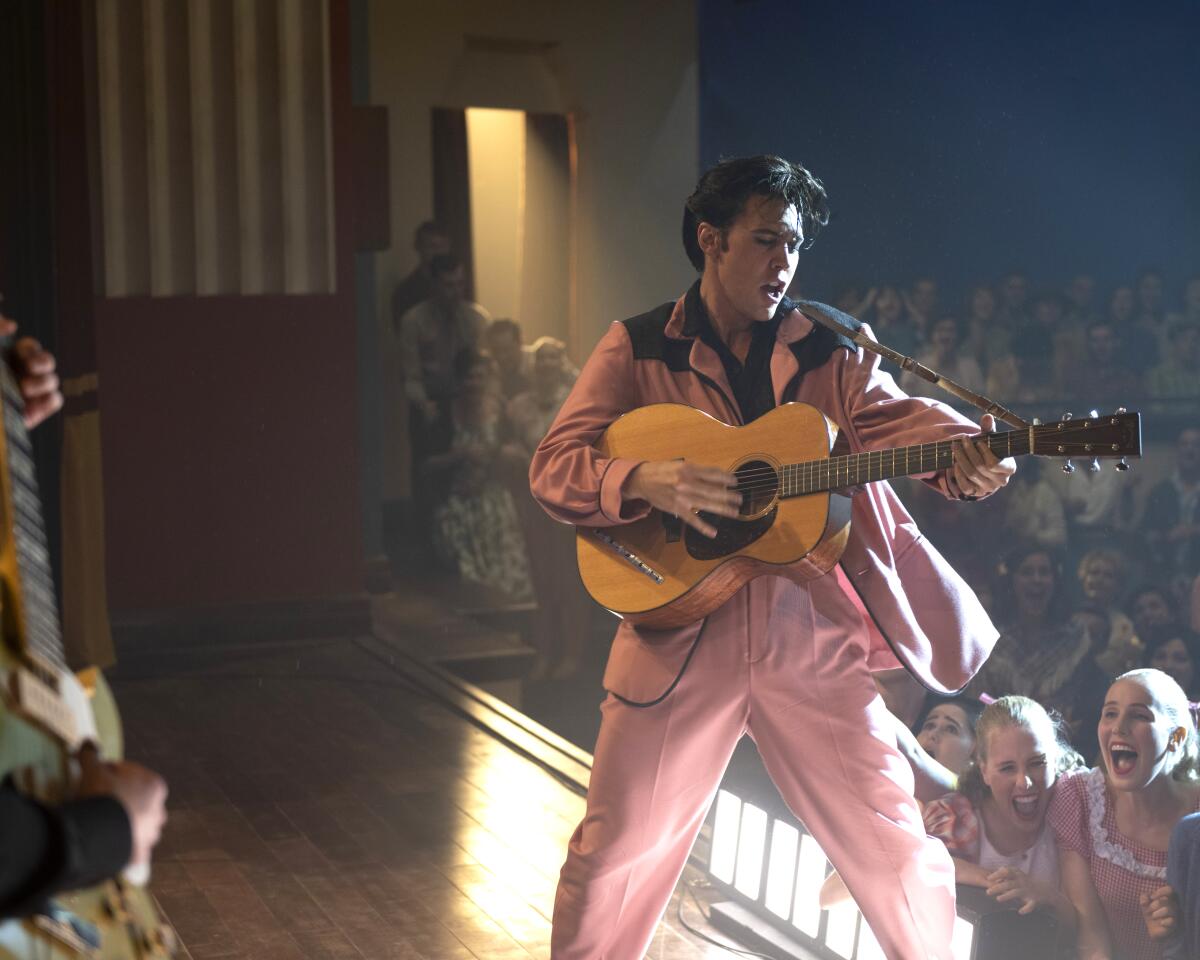
- Copy Link URL Copied!
Why hasn’t there been a great Elvis biopic yet? Well, Austin Butler wasn’t around to star as the King of Rock ’n’ Roll. At the center of Baz Luhrmann’s sprawling pop epic “Elvis,” a film as opulent and outsize as the King’s talent and taste, Butler delivers a fully transformed, fully committed and star-making turn as Elvis Presley. The rumors are true: Elvis lives, in Austin Butler .
Swirling around Butler’s bravura performance is a manic, maximalist, chopped-and-screwed music biopic in which Luhrmann locates Elvis as the earth-shaking inflection point between the ancient and the modern, the carnival and the TV screen, a figure of pure spectacle who threatened to obliterate the status quo — and did. Luhrmann takes Presley’s legacy, relegated to a Las Vegas gag, and reminds us just how dangerous, sexy and downright revolutionary he once was. He makes Elvis relevant again.
Butler leaves it all on the screen, embodying the raw, unbridled sexual charisma of Elvis onstage. He is jaw-dropping, nearly feral in his portrayal of Presley’s most memorable musical performances, from his early days to his 1968 comeback special and his Vegas shows, and Luhrmann shoots and edits these scenes to capture not just Butler’s performance up close but also the powerful impact Elvis had on his fans.
Written by Luhrmann, Jeremy Doner, Sam Bromell and Craig Pearce, the film crams Elvis’ entire career into two hours and 39 minutes of breathless filmmaking, focusing on the energy and emotional beats of Elvis’ journey, as well as his exploitation at the hands of his manager, Col. Tom Parker ( Tom Hanks , heavily made up in prosthetics).
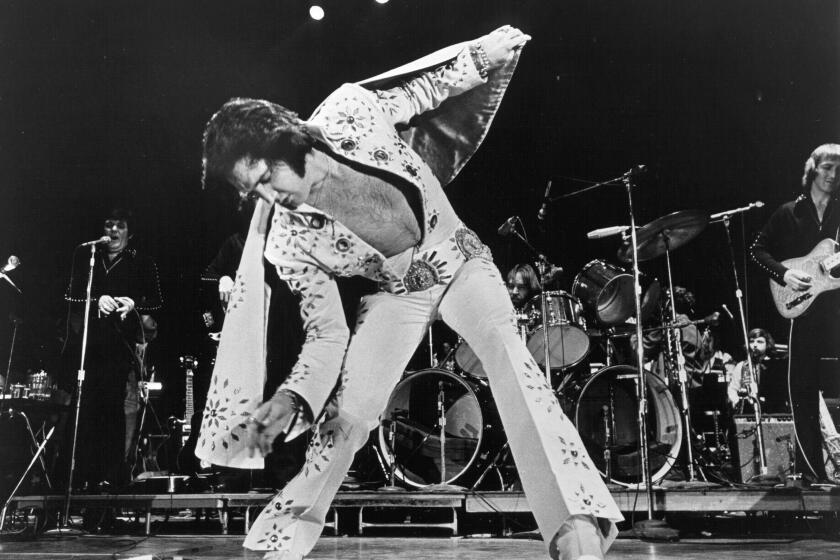
It’s 2022. Does Elvis Presley still matter?
Baz Luhrmann’s splashy “Elvis” biopic attempts to make the King relevant to a new generation. But 50 years after Presley’s last Top 10 hit, is it too late?
June 23, 2022
Luhrmann editorializes on top of that, using a heavy hand in the edit to continually remind us of Elvis’ roots and motivations, and the cultural importance of his ground-breaking career. Contemporary music on the soundtrack links Presley’s performance of Black music to the popularity of modern hip-hop; snippets of Backstreet Boys and Britney Spears hits remind us that Elvis paved the way for teen idols and that his story is also a cautionary tale.
The first part of the film, focusing on his breakout as a pretty white boy from Memphis, Tenn., who sang the blues, is fast, loose and dynamic, a whirlwind of honky-tonks, tent revivals, Beale Street blues and country music shows. The pace is frantic; it can’t sit still in the same way that Elvis can’t keep still when he’s singing, overcome by the music. Cinematographer Mandy Walker’s camera never stops moving, pulling us into this whirlwind of newfound fame, the wheels of the machine turning faster than Elvis can keep up.
The speed and overstimulation is heady and intoxicating, a stark aesthetic and emotional contrast to later chapters in Elvis’ career. The Hollywood days are a montage of color and costume, an inauthentic facade, as he sells out to corporations and the bottom line. In the last section, Elvis is stultified and oppressed, sapped of color and life, isolated in his “golden cage” at the International Hotel in Vegas.
The story is told from Parker’s perspective, a curious choice, though it serves a greater narrative purpose. From his perspective, we understand the spectacle that is Elvis; the colonel nearly licks his chops at the sight of this newest carnival attraction: a handsome, erotic, racial-boundary-crossing young man with a rough croon and a jet-black forelock who can make teenage girls scream. With visions of merchandise dancing in his head, the colonel turns Elvis into a global icon, but as “Elvis” argues at every turn, the colonel tamed the singer’s unruliness and artfulness, forcing him into cheesy movie musicals and relentless touring.

How ‘Elvis’ star Austin Butler lost — and found — himself in the King of Rock ’n’ Roll
Austin Butler poured everything he had into playing Elvis. The actor shares the grief, music and obsessive research that went into his portrayal.
June 24, 2022
Parker is the architect of Elvis’ downfall, extracting everything he can, clipping his wings, sanding down this culture-shifting force and offering him up as a titillating morsel of entertainment, the soul behind the talent tossed into the money-making machine and ground to dust.
The colonel’s narration and Hanks’ cartoonishly evil performance serve as a signed confession of guilt, as Luhrmann gives us Elvis as a Christ-like figure, a sainted martyr of rock ’n’ roll crucified on the cross of capitalism and greed.
While Butler humanizes Elvis, Luhrmann deifies him and argues that he possessed far more radical potential, both musically and politically, than he was allowed. His swiveling hips and jiggling knees weren’t just a portent of boy bands and pop icons to come — “Elvis the Pelvis” also threatened to usher in the sexual revolution and desegregate the South all at once, pushing rock ’n’ roll into the mainstream while starting the very first “culture war.”
“Elvis” isn’t just a reinvigoration of the Elvis myth. It’s also a resurrection of the King himself. Left the building? Not if Baz Luhrmann has anything to say about it.
Rating: PG-13, for substance abuse, strong language, suggestive material and smoking Running time: 2 hours, 39 minutes Playing: In general release June 24
More to Read

With ‘God Said No,’ Omar Apollo bares it all
July 9, 2024

Ryan Murphy: Television’s queer kingmaker
June 2, 2024

Review: In ‘Unsung Hero,’ a family’s musical success story comes to life via the clan itself
April 25, 2024
Only good movies
Get the Indie Focus newsletter, Mark Olsen's weekly guide to the world of cinema.
You may occasionally receive promotional content from the Los Angeles Times.
More From the Los Angeles Times

Stanley Tucci talks to us about his new film ‘Conclave’ and, of course, Italian food
Oct. 23, 2024

Bouncy ’80s pop takes root in ‘New Wave,’ a film about Vietnamese Americans’ glam glory days

Lynda Obst, veteran producer of ‘Sleepless in Seattle,’ ‘Flashdance,’ dies at 74
Oct. 22, 2024

Entertainment & Arts
Pregnancy through the eyes of Jenny Slate, shocking bodily revelations and all
Most read in movies.

What’s fact vs. fiction in Netflix’s ‘Dating Game’ killer film ‘Woman of the Hour’
Oct. 21, 2024

Harold Perrineau’s ‘secret plan’ to bring back ‘The Best Man’ one last time

What was the first episode of ‘SNL’ really like? Fact vs. fiction in ‘Saturday Night’
Oct. 11, 2024
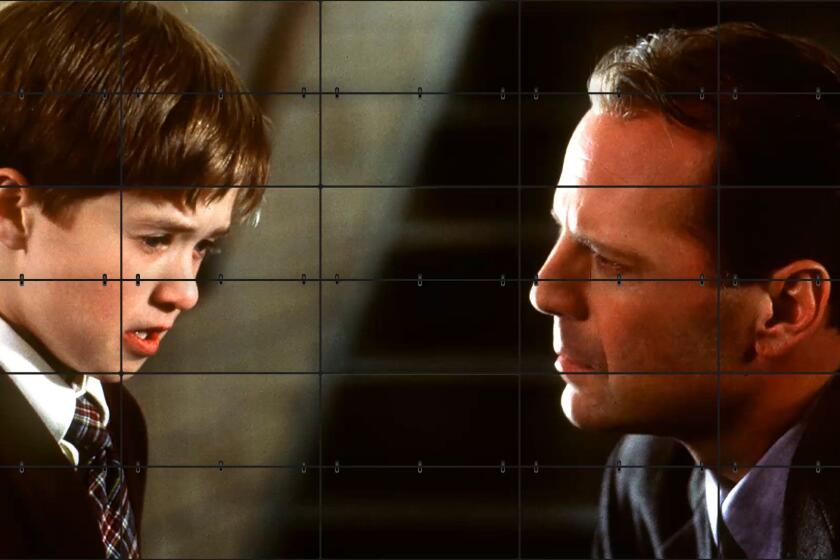
How ‘The Sixth Sense’ trapped M. Night Shyamalan in a twist ending forever
Aug. 6, 2024
- Skip to main content
- Keyboard shortcuts for audio player
Pop Culture Happy Hour
- Performing Arts
- Pop Culture
In 'Elvis,' an icon remains an icon, and little else

Aisha Harris

Austin Butler as Elvis. Warner Bros. Pictures hide caption
Austin Butler as Elvis.
The conundrum facing every biopic about an extremely famous person – the kind of person who truly represents that now overused and diluted term "icon" – is in teasing the human out from underneath all that iconography. Beyond nailing the "look" or "sound," however one might interpret it, does this figure who's been referenced, impersonated, and memed ad nauseum feel like a real person again? Does the exercise result in a better understanding and/or appreciation of their work and what made them iconic in the first place?
A lot of biopics have trouble solving this conundrum. And few, if any, can fully avoid falling into hagiography, which is probably the most common trapping of the genre. Elvis , director and co-screenwriter Baz Luhrmann's dizzyingly absurd take on the life of Elvis Presley (Austin Butler), doesn't just fail at making the so-called King of Rock and Roll into a three-dimensional human being; it actively plunges him further into the recesses of memedom, while making his legacy out to be far less interesting than it actually is.
Listen to Pop Culture Happy Hour on Apple Podcasts and Spotify .
Tom Hanks, and a bizarre Euro-ish accent rivaling the cast of House of Gucci , star as Colonel Tom Parker, Elvis's longtime manager who turned out to be little more than a huckster with a shady past. "The Colonel," as he's known, is both our narrator and nefarious villain who ruthlessly exploits Elvis, though he refuses to see himself as such. In the film's whirlwind of an opening sequence, the aging and ill Colonel insists it's not true he's responsible for the superstar's premature demise at the age of 42: "I made Elvis Presley." He may as well be twirling a wiry handlebar mustache.
From there, Elvis is primarily interested in returning to one loaded and mighty dull question: What, or who, really killed Presley?
To "answer" this, of course, we've got to go back to the beginning, and hit as many of the key points in Presley's history as possible – his early exposure to Black blues and gospel as a boy growing up in Mississippi and Tennessee; his stratospheric rise as a rock and roll sex symbol; the death of his beloved mother Gladys (Helen Thomson); his legendary 1968 TV special, his first of several comebacks; the drug addiction, and so on. In typical Luhrmann fashion, Elvis cycles through almost all of these events and others at breakneck pace, relying upon turbulent split-screen laden montages and the Colonel's signposting voiceover to do most of the heavy lifting in the storytelling department. If you've seen the movie's trailer, imagine all those elisions and quick cuts and dramatic flourishes, but over the course of a nearly three-hour runtime.
This approach can make for some raucous, energetic sequences powered by Butler's dynamic recreations of the performances – the hips wiggle with ease, and according to Luhrmann, it's mostly Butler himself singing those vocals. When he's offstage and the pressures of reality take over, however, the character of Elvis gets lost in the aesthetic cacophony or bogged down by clunky attempts to turn him into a tragic, uncomplicated hero at the mercy of a menacing manager. For one, his relationship and eventual marriage to Priscilla Presley is sanded down to ignore the fact that she was 14 years old –10 years his junior – when they first met.
Judy Garland at 100: A starter guide beyond the Yellow Brick Road

These are the summer movies NPR critics are looking forward to
Elvis also tentatively flirts with his place at the intersection of politics, casting him in familiar light as a rebel whose gyrations and interpretations of "Negro music" incensed white parents and lawmakers, while being sure to note how sad he was about the assassinations of Martin Luther King, Jr. and Robert F. Kennedy. Yet curiously, Luhrmann couldn't find room – in a nearly three-hour movie! Did I mention this already? – to fold in that infamous meeting with President Nixon in 1970, where Presley, by then an elder statesman by pop music standards, railed against hippies and drug culture, which could have been an interesting dramatic contrast to explore.

Shonka Dukureh as Big Mama Thornton in Baz Luhrmann's new Elvis . Warner Bros. Pictures hide caption
Shonka Dukureh as Big Mama Thornton in Baz Luhrmann's new Elvis .
More frustrating, though, is how Elvis treats its subject's relationship to Black music and culture. Luhrmann and his co-writers know it's a facet that can't be ignored, but what is clearly intended to serve as tribute to Presley's Black predecessors and contemporaries plays out instead as lip service. Big Mama Thornton (Shonka Dukureh), Sister Rosetta Tharpe (Yola Quartey), B.B. King (Kelvin Harrison Jr.), and Little Richard (Alton Mason) all pop up here and there in bit parts to draw out the lineage and demonstrate how Presley was embraced by Black communities in his early years. But if a viewer goes into this movie knowing little to nothing about Presley, they'll come away believing it was as simple as that, because the film consciously avoids the more fraught legacy he's had as the white "king" of a genre rooted in Black tradition.

'Pleasure': A young woman's matter-of-fact pursuit of porn stardom
There's no mention of the widespread rumor that he once said "the only thing Negroes can do for me is buy my records and shine my shoes," a rumor that persisted for decades and no doubt helped cement him as little more than a cultural appropriator in the eyes of many. Concrete evidence of this failed to materialize, and it was shot down by Presley himself in an interview with the Black magazine Jet , where he added that "rock and roll was here a long time before I came along. No one can sing that kind of music like colored people." But excising any criticisms or apprehensions from Black artists in the script ultimately does a disservice to him and the inherent nuances in how his art has been received.
As tedious and surface-level as this whole exercise is, it's not boring. Big time Luhrmann fans and Presley fans alike will find enough to latch on to here; it's a movie brimming with nostalgia and admiration for its subject, complete with a Moulin Rouge -like mashing up of classic songs from the catalog with new interpolations by modern artists like Doja Cat and Diplo. (I'd argue that's more effective in Moulin Rouge and Luhrmann's ambitious series about the birth of hip-hop, The Get Down , where the characters have more time to develop in the midst of the vibrant, showy production.)
Yet by the end, a gaudy gloss remains coated upon the man, myth, and legend, Elvis. The movie's answer for what killed Presley, metaphorically speaking, will come as no surprise to anyone who's ever watched a biopic about a pop star. The zany excesses of Elvis just aren't enough to cover over the paint-by-numbers idolatry.
- Baz Luhrmann
- Austin Butler
- Elvis Presley
Log in or sign up for Rotten Tomatoes
Trouble logging in?
By continuing, you agree to the Privacy Policy and the Terms and Policies , and to receive email from the Fandango Media Brands .
By creating an account, you agree to the Privacy Policy and the Terms and Policies , and to receive email from Rotten Tomatoes and to receive email from the Fandango Media Brands .
By creating an account, you agree to the Privacy Policy and the Terms and Policies , and to receive email from Rotten Tomatoes.
Email not verified
Let's keep in touch.

Sign up for the Rotten Tomatoes newsletter to get weekly updates on:
- Upcoming Movies and TV shows
- Rotten Tomatoes Podcast
- Media News + More
By clicking "Sign Me Up," you are agreeing to receive occasional emails and communications from Fandango Media (Fandango, Vudu, and Rotten Tomatoes) and consenting to Fandango's Privacy Policy and Terms and Policies . Please allow 10 business days for your account to reflect your preferences.
OK, got it!
- About Rotten Tomatoes®
- Login/signup
Movies in theaters
- Opening This Week
- Top Box Office
- Coming Soon to Theaters
- Certified Fresh Movies
Movies at Home
- Fandango at Home
- Prime Video
- Most Popular Streaming Movies
- What to Watch New
Certified fresh picks
- 86% Smile 2 Link to Smile 2
- 99% Anora Link to Anora
- 79% We Live in Time Link to We Live in Time
New TV Tonight
- 86% What We Do in the Shadows: Season 6
- 80% Poppa's House: Season 1
- -- Territory: Season 1
- -- Before: Season 1
- -- Hellbound: Season 2
- -- The Equalizer: Season 5
- -- Breath of Fire: Season 1
- -- Beauty in Black: Season 1
- -- Like a Dragon: Yakuza: Season 1
Most Popular TV on RT
- 94% The Penguin: Season 1
- 82% Agatha All Along: Season 1
- 78% Disclaimer: Season 1
- 91% Rivals: Season 1
- 78% Hysteria!: Season 1
- 100% The Lincoln Lawyer: Season 3
- 79% Teacup: Season 1
- 100% From: Season 3
- 85% Sweetpea: Season 1
- Best TV Shows
- Most Popular TV
Certified fresh pick
- 96% Shrinking: Season 2 Link to Shrinking: Season 2
- All-Time Lists
- Binge Guide
- Comics on TV
- Five Favorite Films
- Video Interviews
- Weekend Box Office
- Weekly Ketchup
- What to Watch
Best TV Shows of 2024: Best New Series to Watch Now
50 Best New Horror Movies of 2024
What to Watch: In Theaters and On Streaming
Awards Tour
The Most Anticipated Movies of 2025
One Last Visit to What We Do In The Shadows
- Trending on RT
- Verified Hot Movies
- TV Premiere Dates
- Gladiator II First Reactions
- Halloween Programming Guide
Elvis Reviews
The story shows that the artist took elements from different musical styles such as gospel and blues, to fuse them with country music, rock and roll and even opera. All this through aesthetic characteristic of the director, like comics and the video clip
Full Review | Original Score: 8/10 | Aug 21, 2024

Elvis is Baz Luhrmann’s best film since Moulin Rouge!, a frantic, kinetic and incredibly captivating biopic about the King of Rock and Roll.
Full Review | Original Score: 4.5/5 | Jul 25, 2024
Director Baz Luhrmann’s sixth feature-length film “Elvis“ is officially the best superhero story of 2022.
Full Review | Original Score: 5/5 | Jul 9, 2024
Elvis is a powerhouse of music, superb performances, and immaculate filmmaking. It’s a religious experience of a film. A spiritual exercise in movie making. One of the best films of the year – any year.
Full Review | Original Score: 5/5 | Jul 3, 2024
The first twenty-some-odd minutes of this film is masterful at completely and utterly overloading the viewer.
Full Review | Original Score: 4/4 | Jun 19, 2024
Luhrmann overlooks a lot of the horrible things that happened during his legacy to create a version that is worthy of the big screen.
Full Review | Sep 8, 2023
There is no doubt in my mind that Elvis is a fine tribute that many fans won't regret watching, but it just gets in its own way and doesn't manage to stand as an exceptional one.
Full Review | Original Score: 3/5 | Jul 31, 2023
The film gets in its way but is a good start for Butler’s growing career.
Full Review | Jul 26, 2023
The triumph of Elvis comes in the form of lead actor Austin Butler, who embodies the King from start to finish. Butler's performance brings life to an often cartoonish man, selling his soul to director Baz Luhrmann's trademark flash and flair.
Full Review | Jul 25, 2023
Elvis is a strong effort from everyone involved, and is worth watching for Butler alone; he is a star. It's a wild ride that will undoubtedly provide fun, laughter and toe-tapping happiness.
Full Review | Original Score: 3.5/5 | Jul 24, 2023
Colonel Parker describes Elvis as “the greatest show on earth.” If Butler’s performance manages to capture even an ounce of Elvis’ magic, Colonel Parker might just have been right.
Full Review | Jul 24, 2023
Austin Butler stars in a sensory experience so flashy and grandiose that it can only be described by the feeling it evokes: nausea.
Full Review | Original Score: 2.5/5 | Jul 21, 2023
It also shows Luhrmann continuing to swing for the fences. His "Elvis" captures the enormity of this pop culture phenomenon, with enough chutzpah to overcome the bumps in the road.
Full Review | May 30, 2023
Here’s the key problem: there are effectively two films playing out at the same time.
Full Review | Original Score: 4/10 | Apr 12, 2023
There’s just no reason for its nearly 160-minute runtime; but the music is fantastic.
Full Review | Original Score: 6/10 | Mar 31, 2023
Butler here is a co-auteur in a way usually closed to biopics in which the lead actors are more famous than Butler is, and so we never lose them in their roles as other famous people.
Full Review | Mar 16, 2023
Another flat one sided look at a rock idol that’s never bold enough to challenge our perceptions of them.
Full Review | Feb 17, 2023
Rarely do we see a performance that is so electric that as soon as the film gets over, one rushes to search about the actor instead.
Full Review | Jan 31, 2023
A dazzling opulence of color, set design, and musical presentations.
Full Review | Original Score: A- | Jan 24, 2023
Butler’s explosive interpretation of Elvis – from the physical gesticulations to the big, burly voice – humanized The King, pulling down the bright lights to show us the distressed man behind the immortal God of Rock.
Full Review | Jan 16, 2023

IMAGES
VIDEO
COMMENTS
Reviews. Elvis. 159 minutes ‧ PG-13 ‧ 2022. Robert Daniels. June 22, 2022. 6 min read. “Elvis” brings all of the glitz, rhinestones, and jumpsuits you’d expect in an Elvis film, but without the necessary complexity for a movie from 2022 about the “King.”
Elvis is Baz Luhrmann’s best film since Moulin Rouge!, a frantic, kinetic and incredibly captivating biopic about the King of Rock and Roll. Rated: 4.5/5 • Jul 25, 2024. Director Baz Luhrmann...
Austin Butler and Tom Hanks in Baz Luhrmann’s ‘Elvis’: Film Review | Cannes 2022. The King of Rock and Roll gets suitably electrified biopic treatment in this kinetic vision of his life and...
“Elvis” puts its hero in the presence of Black musicians including Sister Rosetta Tharpe (Yola), Big Mama Thornton (Shonka Dukureh) and B.B. King (Kelvin Harrison Jr.), who offers career advice.
Elvis: Directed by Baz Luhrmann. With Austin Butler, Tom Hanks, Olivia DeJonge, Helen Thomson. The life of American music icon Elvis Presley, from his childhood to becoming a rock and movie star in the 1950s while maintaining a complex relationship with his manager, Colonel Tom Parker.
‘Elvis’ Review: Baz Luhrmann’s Biopic, Starring Austin Butler and Tom Hanks, Is a Stylishly On-the-Surface Life-of-Elvis Impersonation Until It Takes Off in Vegas
Luhrmann and his co-writers Sam Bromell, Craig Pearce and Jeremy Doner use the story of Elvis’ supremely crooked manager, Colonel Tom Parker (Tom Hanks, lurking beneath prosthetic jowls), to ...
Baz Luhrmann’s erotically charged biopic “Elvis” doesn’t just reinvigorate the Presley myth, it resurrects the King and makes him relevant again.
Elvis, director and co-screenwriter Baz Luhrmann's dizzyingly absurd take on the life of Elvis Presley (Austin Butler), doesn't just fail at making the so-called King of Rock and Roll into a...
Elvis is Baz Luhrmann’s best film since Moulin Rouge!, a frantic, kinetic and incredibly captivating biopic about the King of Rock and Roll. Full Review | Original Score: 4.5/5 | Jul 25, 2024